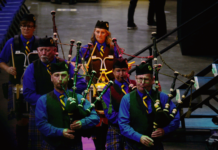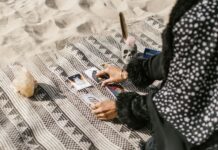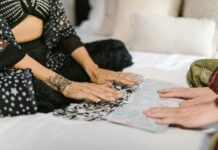A week on being sweet with yourself and others, sans the sourness
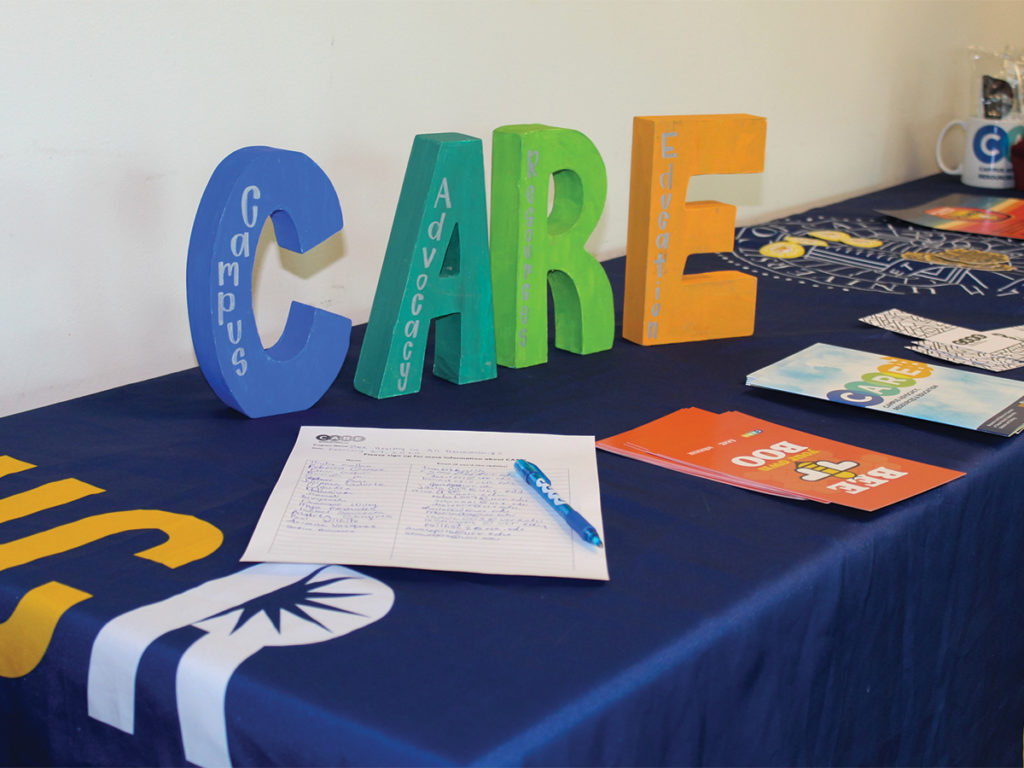
The Campus Advocacy, Resources & Education group (CARE) hosted their annual Bee Healthy with Your Honey celebration all through last week, a collection of events aimed to teach students what it means to love yourself as well as love others. The week was organized by the Sexual Assault and Violence Education (SAVE) Peer Group, a partnered group under CARE.
On Tuesday, Feb. 25, students gathered in a circle in HUB 355, on chairs or yoga mats, snacks in hand and wrapped in blankets as they introduced themselves for “Bee Your Own Boo: The Importance of Self Love for Relationships.” From the discussion, it was learned that self-care can come in many forms: for some, it’s putting on makeup in the morning, for others it’s looking back on what they are grateful for, be it today or throughout their whole life.
Neglecting to care for yourself can have detriments beyond mental; it strained the relationships of some and left others bedridden from burnout. It was mentioned that students can especially have it rough. As one attendee put it, “Keep in mind that we’re students and that we have to deal with a lot. We can have three lectures back to back with no time for lunch,” but regardless she emphasized that “we need to have a way to keep ourselves energized so we can be and give our best.”
Jacqueline Grimaldo, a fourth-year sociology law and society major, was a SAVE Peer Educator that helped manage the event with her team. Rather than list what the attendees could do to practice self-care, Grimaldo and her group determined that they should focus on “really unpacking what that (self-care) means for you and for the people around you.” As such, the relaxed organization of the room, which was filled with mats and blankets, was meant to make the discussion feel intimate.
On Wednesday, Feb. 26, SAVE hosted the “Bee Healthy with Your Honey Tabling Fair,” complete with tablers from various campus resource centers as well as activity tables. At the tabling fair was a button-making station and a CARE gram table where students could write a loving message to anyone, even themselves.
There was also a station that discussed the five love languages (quality time, receiving gifts, words of affirmation, physical touch and acts of service) and allowed students to find which languages of love they were fluent in, though this was no longer the case once they ran out of survey sheets. Meanwhile, students put sticky notes of what love was to them on a whiteboard surrounding a heart-shaped “Healthy” in the middle. One note read, “consider your loved ones before moving forward.” Another, “HONEY” in full capitalization; perhaps the writer meant that one be sweet as such, keeping in line with the name of the week.
Tablers came from all over campus and handed out pamphlets with information on different resource centers: those looking for mental help were asked to stop by Counseling and Psychological Services (CAPS). For the food-insecure on campus, of which two-thirds of UCR’s campus classifies as, a “Food For Thought” quad-folding pamphlet was handed out, outlining various food resources on and off campus. There were also several tables focused on the education of sexual health, sharing information on things like navigating HIV and AIDS and responding to sexual assault.
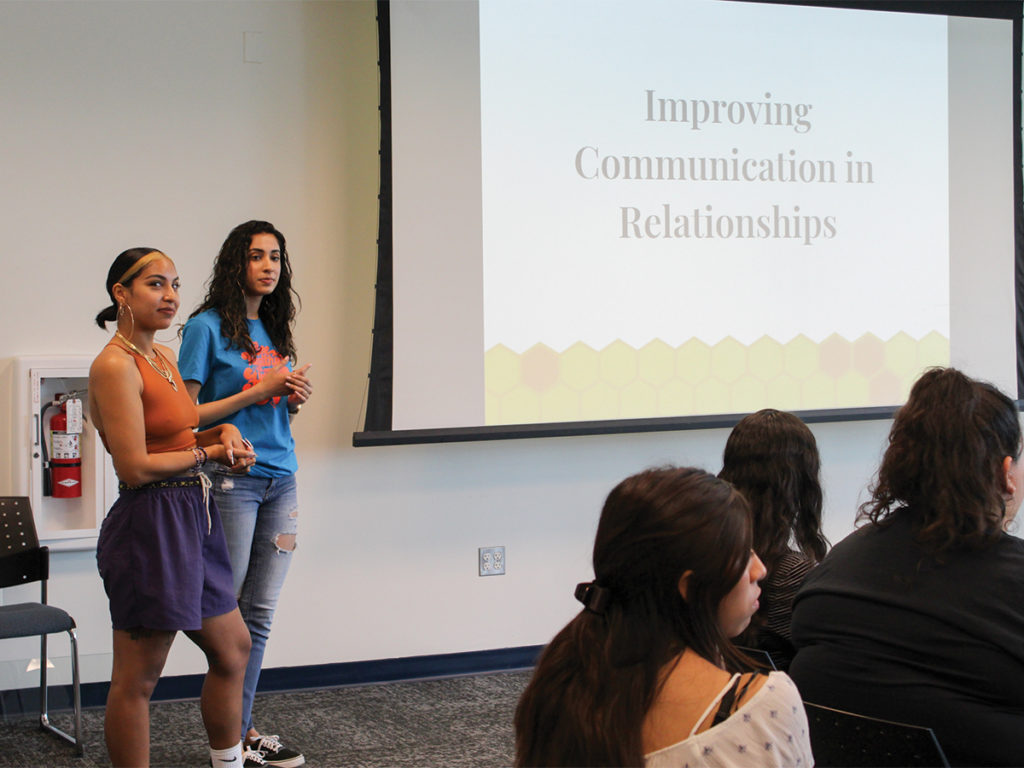
The next day, “Bee Healthy in All Relationships” was held in HUB 260, where attendees discussed what it meant to maintain a healthy relationship, be it romantic, friendly or anywhere in between. CARE’s Violence Prevention Coordinator Lisa Chu talked about how her group has helped UCR students maintain healthy relationships over the years. “I think one big accomplishment is that students are becoming a lot more understanding, gaining more awareness and feeling a lot more empowered to utilize resources to seek help, to talk to the advocates, to look into all their options,” she said.
Ultimately, Chu wants CARE to feel like a place students can turn to when they are scared. One important aspect of our office is it’s a confidential resource for those who “seek it out like a safe space, that’s the intention … What the advocates do in our office is provide people a way out, options for them so they can decide whether they want to seek out help or if they want to report something: advocates really support them through that process.”
Links to resources related to this article can be found in the online publication. To find more student resources, visit CARE’s office in Life Sciences 2620 or visit them online at care.ucr.edu.


